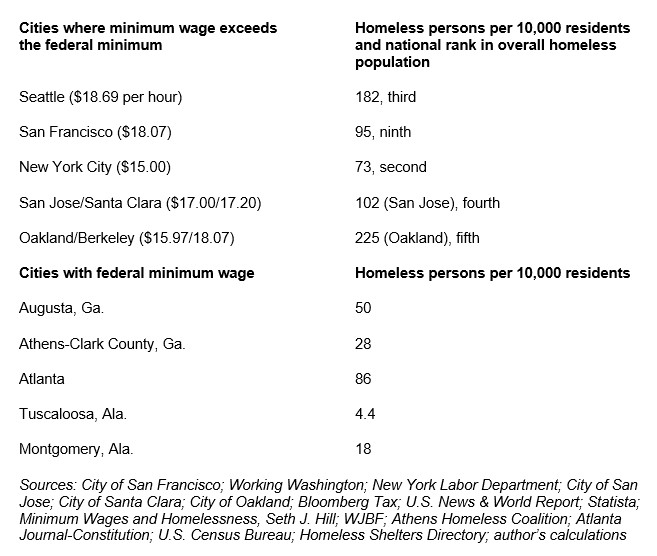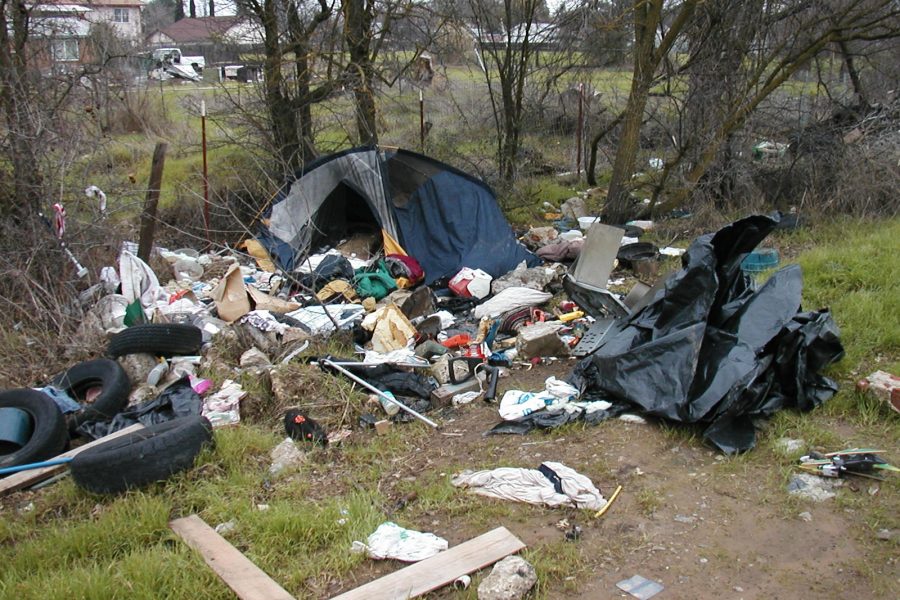It’s widely though not universally acknowledged that minimum-wage increases are job killers. When statutes require employers to pay wages above market value, they will take avoidance measures. In the 2020s, automation becomes an appealing alternative for many. But not all businesses can replace their workers with robots. They are left with a limited number of hard choices, which include downsizing staff, cutting hours, and delaying planned hires.
A long-term study of wage history California determined “that a 10% increase in the minimum wage would cause a nearly 5% reduction in employment in an industry where one-half of workers earn wages close to the minimum.”
In addition to eliminating jobs, the impacts of minimum-wage hikes could also “drive declines in nonwage compensation such as fringe benefits, job flexibility, or incidental experience at the workplace,” says Seth J. Hill in his June paper “Minimum Wages and Homelessness.”
Additional effects of increased minimum wage include higher prices, lapses in customer service, businesses substituting higher-skill labor for lower-skill labor, and the possibility that young males who lost hours at their jobs, or their jobs altogether, will fall into loitering and petty crimes.
But from his research on the fallout from minimum wage changes in U.S. cities and states from 2006 to 2019, he also found “that minimum wage increases lead to increased point-in-time homeless population counts,” too.
Hill looked at 42 cities and plotted a time-series of minimum wage annual averages. He also charted six “localities in states that followed the federal minimum wage.” When he compared them, the results suggested that “when cities raise their minimum wage by 10 percent, relative homeless counts increase by three to four percent.” (See chart for how selected cities from the paper match up.)

So now we know the “what.” What about the “how”?
Hill says, “minimum wages could cause homelessness through different mechanisms.” But “most obviously,” when minimum wages cause disemployment for low-skill workers, the lost jobs can worsen economic insecurity and diminish their ability to pay for housing.
As is the case with so much in life, size matters. The larger the increase, the greater the growth in homelessness. For instance, the municipalities that increased their minimum wage by $1 or less saw their homeless populations subsequently grow by about 10 percent. When the raises exceeded $1, he estimates the “relative effect” can be a rise in the homeless population of 45 percent, and possibly higher.
Over a longer period, 2013-2018 as opposed to 2013-2015, increases of up to $2.50 meant “increases in homeless counts of around 14 percent” while minimum-wage hikes beyond $2.50 “corresponded with nearly a 25 percent growth in homelessness.
Hill suggests that “scholars and policymakers who aim to understand and combat homelessness should consider labor market opportunities,” while also looking deeper into the “distributional consequences of minimum wage laws.” Adding a new wrinkle – “effects at the intersection of the two” – might make their jobs harder, but at least they will have a clearer understanding of the consequences of their policy actions. They can’t say that they didn’t know any better.
Kerry Jackson is a fellow with the Center for California Reform at the Pacific Research Institute.


